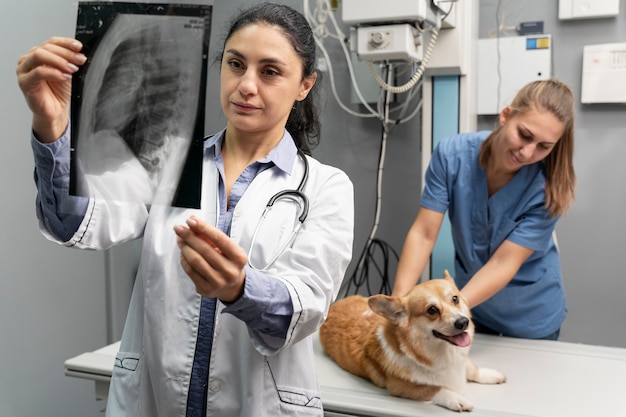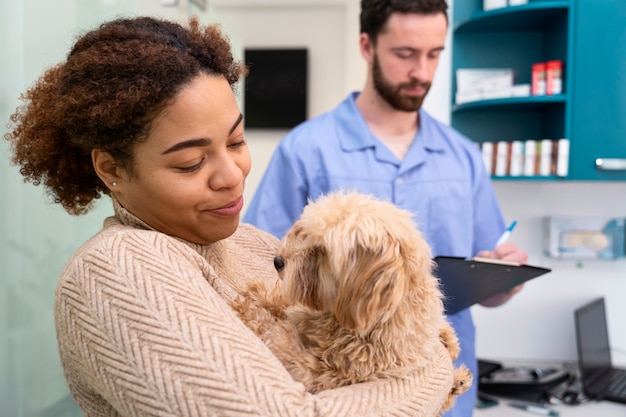Understanding Cystotomy Surgery: Quick Relief for Pet Urinary Emergencies

Understanding Cystotomy Surgery: Quick Relief for Pet Urinary Emergencies
When a beloved pet is suddenly straining to urinate or showing signs of severe discomfort, the experience can be frightening for any pet owner. Urinary blockages can develop quickly, putting your dog or cat at risk for life-threatening complications. At VetCheck Pet Urgent Care Center - Carmel, our veterinary team at 1374 South Rangeline Road, Carmel, IN 46032 is prepared to provide immediate care when these emergencies arise. Cystotomy surgery for pets is a vital, effective procedure that offers relief from dangerous urinary blockages and restores comfort for your pet as quickly as possible.
In this comprehensive guide, we will help you recognize the urgent signs of urinary obstruction, explain how and why these blockages develop, and walk you through what to expect from diagnosis to recovery after cystotomy surgery. Throughout, you will learn why our urgent care veterinary professionals are uniquely equipped to offer lifesaving pet urinary blockage treatment in Carmel and surrounding communities. Walk-ins are always welcome, and no appointment is needed—our doors are open when your regular veterinarian is unavailable, so your pet never has to wait for the care they deserve. For more details on how cystotomy surgery can help your pet, you can visit our Cystotomies Surgery information page.
Recognizing Urinary Blockage: When Is Cystotomy Surgery for Pets Needed?
Understanding when your pet may be suffering from a urinary blockage is essential for getting timely help. Urinary obstructions are most common in male cats, but dogs and female pets can also be affected. Early intervention can mean the difference between a straightforward recovery and a critical emergency.
Signs Your Pet Needs Immediate Veterinary Attention
Key symptoms of a urinary blockage include a pet making frequent, unproductive trips to the litter box or outside, straining or vocalizing during urination, and producing only small dribbles or no urine at all. Additional warning signs are blood in the urine, visible discomfort when touched near the lower abdomen, and sudden lethargy or vomiting. In severe cases, your pet may collapse or show signs of confusion due to toxin buildup in the bloodstream. If you notice any of these symptoms, urgent pet urinary blockage treatment in Carmel is critical.
Because urinary blockages can escalate quickly—sometimes within hours—never wait to see if symptoms improve on their own. Seeking prompt care from an "emergency vet near me" can prevent irreversible organ damage and save your pet’s life.
Why Do Pets Develop Urinary Blockages? Causes and Risk Factors
Once you recognize the warning signs, you might wonder what has caused your pet’s distress. Urinary blockages can result from a variety of factors that lead to the narrowing or complete obstruction of the urinary tract.
Common Causes of Urinary Obstruction in Pets
In many cats, blockages are caused by mineral crystals, mucus plugs, or small stones that become lodged in the urethra. Dogs may develop similar obstructions, although bladder stones tend to be a more frequent culprit in canines. Less commonly, tumors, scar tissue, or severe inflammation from infection can cause narrowing of the urinary passage. Certain breeds, dietary factors, dehydration, and underlying medical conditions like urinary tract infections all play a role in increasing your pet’s risk.
Understanding these causes can help you take preventive measures, but when a blockage occurs, rapid intervention is essential. Our veterinary team uses advanced in-house diagnostics and X-rays to quickly identify the source of your pet’s problem and determine whether cystotomy surgery for pets in Carmel is needed.
How Cystotomy Surgery for Pets Works: What to Expect During Treatment
Once a urinary blockage is confirmed, your veterinarian will determine the safest, most effective way to clear the obstruction. While some blockages can be relieved with a catheter, others—especially those caused by stones or recurrent obstructions—require surgical intervention.
What Happens During Cystotomy Surgery?
Cystotomy surgery involves making a small incision into the bladder after your pet is safely anesthetized. During the procedure, the veterinary surgeon removes stones, debris, or tissue causing the blockage. The bladder and urethra are carefully flushed to ensure that no remaining particles could create future issues. After the blockage is cleared, the bladder is sutured closed, and your pet begins recovery under close supervision.
At VetCheck Pet Urgent Care Center - Carmel, our urgent care veterinarians are skilled in performing cystotomy surgery for pets using sterile technique and careful pain management. Because we offer immediate access to diagnostics and advanced surgical care, pets with urinary blockages receive timely treatment—even after hours or during weekends when your regular clinic may be closed.
To learn more about the surgical options available for your pet’s urgent health needs, visit our Soft Tissue Surgery services page.
Recovery and Aftercare
Most pets recover quickly after cystotomy surgery, especially when the blockage is addressed promptly. Your pet will be monitored for urine production and signs of discomfort, and pain relief is administered as needed. Antibiotics and a special diet are often prescribed to support healing and help prevent recurrence. Our veterinary professionals will provide detailed, personalized instructions for caring for your pet at home and monitoring for any complications.
Prevention and Home Care: Reducing the Risk of Future Urinary Blockages
While some urinary blockages can occur suddenly and without warning, there are steps you can take to help protect your pet’s urinary health.
Steps to Keep Your Pet’s Urinary Tract Healthy
Providing plenty of fresh water is essential, especially for cats who may be prone to dehydration. Feeding a veterinarian-approved diet that supports urinary tract health can help reduce the formation of crystals and stones. Encouraging regular bathroom habits, keeping litter boxes clean, and promptly addressing any changes in urination are also important. If your veterinarian has recommended a special prescription diet or medication, be sure to follow their instructions closely.
For pets who have experienced a urinary blockage, regular follow-ups with your veterinarian are crucial. Our team offers ongoing support and guidance to help you manage your pet’s health and minimize the chances of recurrence. If you have questions about urinary issues or prevention, our Urinary Issues resource provides helpful information tailored to your concerns.
When to Seek Veterinary Care for Pet Urinary Blockage
Pet urinary blockages are true emergencies and should never be ignored or delayed. If your pet is unable to urinate, is straining with no success, or appears to be in pain, you should seek veterinary care immediately.
Why Choose an Urgent Care or Emergency Vet Near Me?
Cystotomy surgery for pets in Carmel and the surrounding communities requires rapid response and specialized equipment to give your pet the best outcome. At VetCheck Pet Urgent Care Center - Carmel, we are equipped to provide urgent pet urinary blockage treatment near you, even during evenings, weekends, or holidays. Our walk-in policy means no appointment is necessary, so you never have to wait for relief when your pet’s health is at stake.
Our veterinary professionals will quickly assess, diagnose, and treat your pet’s urinary emergency while keeping you informed every step of the way. If you are searching for an "urgent care vet near me" who understands the importance of immediate intervention, our team is ready to help.
Take Action for Your Pet’s Health: Fast Relief for Urinary Emergencies in Carmel
If your pet is showing signs of urinary blockage, do not wait—every moment counts. Our veterinary team at VetCheck Pet Urgent Care Center - Carmel is committed to providing rapid, compassionate cystotomy surgery for pets in Carmel and surrounding communities. Walk-ins are always welcome, and no appointment is needed. We are here when your regular veterinarian is closed or unavailable, so your pet always has access to emergency pet urinary blockage treatment in Carmel.
For prompt, expert care, visit our clinic at 1374 South Rangeline Road, Carmel, IN 46032 or call us at (317) 516-0707. To understand more about how we can help your pet in urgent situations, read about our emergency and urgent care services. Remember, when you need an emergency vet near me, our doors are open for your pet’s safety and your peace of mind.
If you are ever unsure whether your pet’s symptoms are urgent, it is always best to err on the side of caution. Immediate action can make all the difference, and our veterinary professionals are here to support you and your pet every step of the way. For more information or to prepare for future emergencies, explore our resources on in-house diagnostics and urinary health.
Disclaimer: This article is for informational purposes only and does not substitute for professional veterinary advice. If your pet is experiencing symptoms of a urinary blockage or other emergency, seek care from a veterinarian immediately.



















